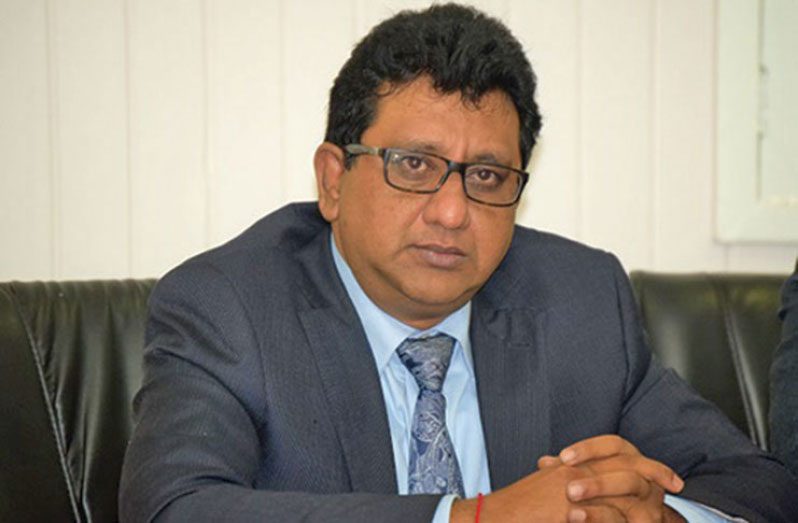-nothing sinister about bill, says Attorney General
THE proposed amendment to Section 25 of the Police Act, Chapter 16:01 of the Laws of Guyana, to allow for the use of deoxyribonucleic acid (DNA) information for the purpose of identifying persons in the custody of the police, will be amended to follow the internationally accepted standards on the subject matter.
This comes against the backdrop of the Guyana Bar Association (GBA) registering concerns in relation to the proposed amendment. The Bar Association had noted that “the proposed amendment, if passed in its current form, without more, can result in the gross erosion and infringement of a person’s constitutional rights.”
“It’s a very small amendment, and the concerns that have been raised are very clear. In our efforts to address those concerns, we will look at whether they are in consonance with what the international protocols on the issue are,” Attorney General and Minister of Legal Affairs, Anil Nandlall, S.C., told the Sunday Chronicle.
As it stands, Section 25 of the Police Act 1957 makes it lawful for any member of the Guyana Police Force to take and record measurements, photographs and fingerprints, for the purpose of identifying all persons who may, from time to time, be in lawful custody.
However, since the legislation was enacted, international policing standards have been radically transformed and modernised. As Nandlall explained, DNA is now a permanent feature in criminal investigations, and as a result, every law enforcement agency, in almost every country, is constructing a database of DNA.
DNA profiling is a state-of-the-art procedure that can be used to identify individuals on the basis of their unique genetic makeup. While people may share the same eye and hair colour, and may even look alike, they will not have the same DNA.
On these grounds, the technology has revolutionised the criminal justice system as DNA serves as a very useful tool to accurately solve crimes. Forensic scientists can use DNA found at a crime scene and compare it to a suspect’s DNA sample once it is logged in a database, and be able to identify them.
The Bar Association had agreed that DNA evidence is a useful tool in proving the guilt or innocence of an accused. However, they protested that the obtaining of that information merely on arrest, without consent or Order of Court, is alarming and dangerous.
The GBA said they found it wholly unacceptable that the power to obtain ‘DNA’ from the body, would be placed in the hands of a member of the Police Force without oversight and sufficient safeguards, something Nandlall is cognisant about.
“The objections which we have seen is not directed to the police extracting DNA samples from persons per se, they relate, as I understand them, to the stage of the investigation when the DNA sample is to be taken,” Nandlall said.
“So, we don’t need to reinvent the wheel, we will simply look at what is the trend in the Caribbean and in the Commonwealth and what is the international protocols on the extraction of DNA and try to implement that in Guyana,” he added.
Section 25 goes on to state provided that if samples are taken from a person who has not previously been convicted of any criminal offence, and such person is discharged or acquitted by a court, all records of the samples must be destroyed or handed over to the person. However, an amendment of this was not proposed.
The Attorney General has posited that while it is generally believed that DNA samples should only be taken from convicts, it is also useful to take and store DNA samples from “usual suspects” who may not have been previously convicted.
“One cannot rule out the utility of taking and keeping DNA samples of persons who are considered the usual suspects, they may not have suffered a conviction for whatever reason but they are known to be associated with certain criminal activity,” he said.
The Bar Association expressed that the amendment is so wide it lays fertile ground for much mischief in the event of its misuse, without due and proper safeguards, but Nandlall has assured that international practices will be assessed to bring Guyana in line with those practices as he registered that “there is absolutely nothing sinister about the Bill.”



.jpg)











